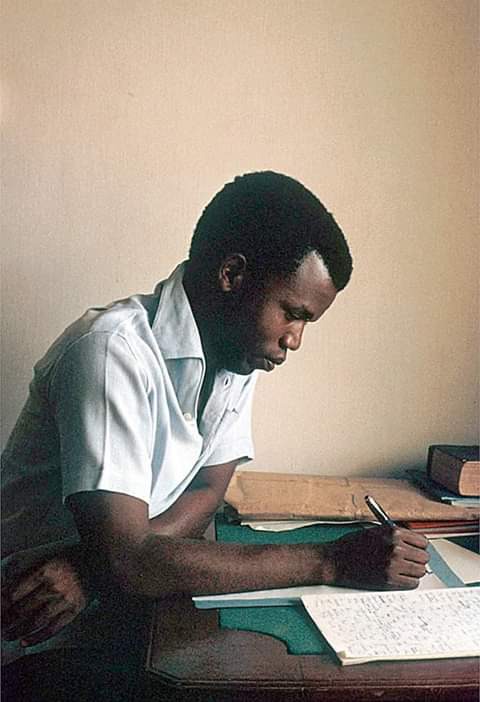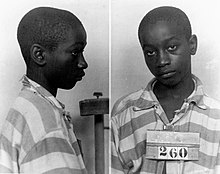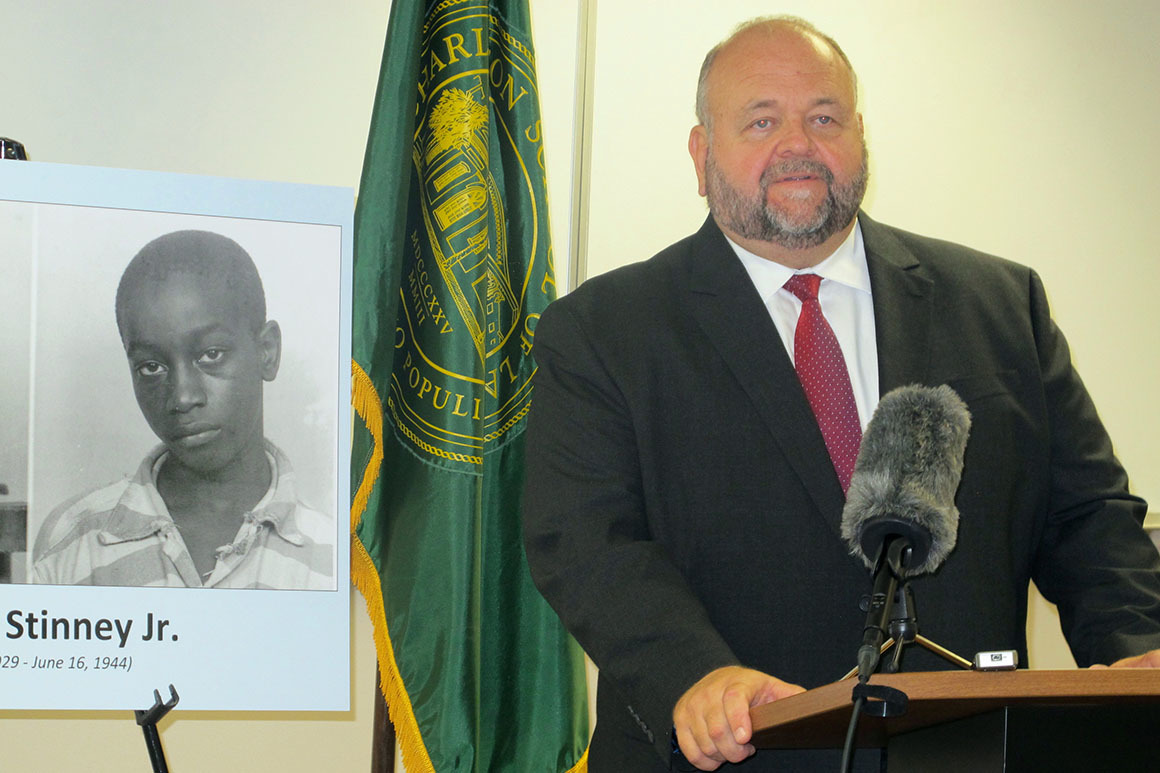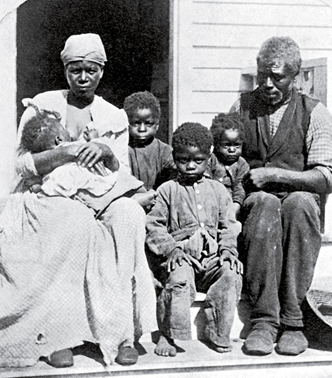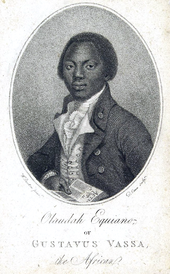"Sir Louis Odumegwu Ojukwu (1909-1966) was a notable Businessman/ Transporter and one of the wealthiest men in Nigeria. Born in Nnewi Anambra State, Ojukwu attended Primary school in Asaba and went on the Hope Waddell Training Institute Calabar. He started work in the Colonial Agriculture dept and later joined John Holt as a Tyre clerk. He soon left to set up a Textile business and also a Stockfish import business(the first in the country). He later diversified into Transportation and soon amassed the largest fleet of 'mammy-wagons' (named due their popularity with market women)in Nigeria. He was knighted by the Queen in 1960. Ojukwu served on the boards of the Nigerian National Shipping Line, Nigerian Coal Corporation, Shell Oil, D'Archy, and African Continental Bank." He rose so high that in today's dollars, he's considered to be about $40 billion wealthy---which is more than Dangote and Otedola combined.
Ojukwu died in 1966, just a year before the Nigerian Civil War. His son the late Chukwuemeka Odumegwu Ojukwu was the leader of the secessionist state of Biafra.
A viral original post from HistoryVille has captured his rise to wealth here
"THE INSPIRATIONAL STORY OF SIR LOUIS OJUKWU
A lot of people may not know who Sir Louis Philip Odumegwu Ojukwu is besides the fact that he was the father of late Biafran Warlord, Dim Chukwuemeka Ojukwu. But the fact is that he was one of the greatest Business men ever produced in Africa and one of the richest. It beggars belief that Sir Ojukwu went to lagos with nothing in 1929 aged just 20 but 10 years later aged just 30, he was already managing his own chain of businesses which included, Ojukwu Stores, Ojukwu textiles and Ojukwu transportation company. By 1950, just Ojukwu Transportation company had over 200 trucks in its fleet. How did he do it?
Born Louis Philip Odumegwu Ojukwu in Nnewi in 1909, the only boy and second of four children,Sir Ojukwu went to Government primary School Asaba. In 1922, he proceeded to the only secondary School in the Eastern region at the time, Hope Waddell training institute, Calabar. After completing his secondary School education in 1928.
Sir Louis secured a job as a tyre sales clark with John Holt lagos in 1929. It was working as a tyre clark the Sir Louis Ojukwu noticed that many Igbo traders who came to lagos to buy tyres also bought textiles as well. With his meagre saving, Sir Louis travelled down to Onitsha where he opened his first business venture called "Ojukwu stores" and employed one of his relatives to oversee it. He then returned to lagos and started sending down textiles on Lorries to his shop while still working for John Holt. Sir Louise's textile boomed.
By 1930, Louis bought a second hand truck and employed a driver in other move his goods himself and 'Ojukwu transport company' was born. Sir Ojukwu worked tirelessly and by end of the 1930's, was the major transporter on the East-West Road. In 1939, on the outbreak of world war 2, the British Government requested the use of Sir Ojukwus fleet of trucks for the War effort to which he agreed.
When the war ended in 1945, the British Goverment recognised the sacrifice he made and he was awarded a KBE (Knight of the British Empire). The end of the war also created a high demand for raw materials from West Africa and sir Ojukwus Transport business exploded sky high and he diversified into other businesses.
Some of Sir Ojukwu's early drivers such as Chief Ilodibe (Ekene Dili Chukwu) and Chief Izuchukwu (Izuchukwu Transport) would later become Transport moguls themselves.
Sir Ojukwu was so rich that in 1956 when the Queen visited Nigeria, the British authorities had to borrow his Rolls Royce and personal driver to chauffeur the Queen around. Sir Louis was also a financial pillar of Ziks NCNC party and when the party came to power in 1960, Sir Louis was offered the position of Finance Minister which he turned down, the position ultimately went to Okotie-Eboh. Sir Louis died in Nkalagu, present day Ebonyi state, in 1966. Sir Louis CV is the most intimidating I have ever seen and probably will ever see. He was:
1)The first President of the Nigerian Stock Exchange
2) President, African Continental Bank
3) Chairman, Nigerian cement company (NIGERCEM)
4) CEO, Ojukwu Transport company...over 5000 fleet of trucks
5) Chairman, Nigerian National Shipping Line...over 100 ships and vessels
6) Chairman, Lion Of Africa Insurance Company
7) Chairman, BISCO Nigeria Limited
cool Chairman, Nigerian Industrial Development Bank...founded to specifically give loans to industries
9) Vice President, lagos Chamber Of Commerce
10) Chairman, Palmline Shipping company
11) Chairman, Nigerian Produce Marketing board
12) Chairman, Eastern Nigerian Development Corporation
13) Chairman, Costain west Africa
14) Director, Shell D'Arcy Petroleum
15) Director, Thomas Wyatt & Son
16) Director, Nigerian Coal corporation
17) Director, Guiness Nigeria Limited
18) Director, Nigerian Tobacco Company
19) Director, Daily Times of Nigeria
The man was simply larger than life. Sir Louis also owned numerous building, landed properties and stocks. It is estimated that as at the time he died in 1966, he was worth about 40 Billion Dollars in today's money."
OJUKWU WAS SO RICH, NIGERIA GOVERNMENT BORROWED HIS CAR TO HOST THE QUEEN?
This classic 4-door convertible sits on a chassis made by Hooper & Co
There have been rumors that Nigeria borrowed the vehicle used to convey the Queen from Ojukwu. The Queen got around in a 1952 LWB Rolls-Royce Silver Wraith LWB.
Read More About Sir Louis Ojukwu
Sir Louis Odumegwu Ojukwu, OBE,(1908-September 1966) was a Nigerian business tycoon from the Ojukwu family of Nwakanwa quarters obiuno umudim Nnewi. Sir Louis, who was considered the wealthiest person in Nigeria and the whole of west Africa at the time, was Nigeria's first recorded billionaire with his networth reaching equivalent of 4 billion dollars using today's currency, and he was the founder of Ojukwu Transport, Ojukwu Stores and Ojukwu Textiles. At his peak, he was the first and founding president of The Nigerian Stock Exchange as well as president of The African Continental Bank. He was also either chairman or on the board of directors of some of Nigeria's most profitable companies such as Shell Oil Nigeria Limited, Guinness Nig. Ltd, Nigerian National Shipping Lines, Nigerian Cement Factory, Nigerian Coal Corporation, Costain West Africa Ltd, John Holt, Nigerian Marketing Board amongst others. He won a parliamentary seat during the nation's first republic. He attended a primary school in Asaba and the Hope Waddell Institute. His son Chukwuemeka Odumegwu Ojukwu was a Nigerian military governor and the president of the secessionist state of Biafra.
Life and Career
In 1936 he met Bishop John Cross Anyogu - then a parish priest at Nnewi. Louis was a Roman Catholic.
Ojukwu started his professional career at the Agricultural department before leaving to join John Holt as a tyresales clerk. He also incorporated a textile company in Onitsha to supplement his income during this period, already exhibiting a little bit of his entrepreneurial spirit. While at John Holt, he noticed the severe strain a lack of adequate transportation had on Eastern textile traders. He later left John Holt to create a transport company to improve the trading environment for Nigerian traders. As a transporter he was a tireless worker and meticulous to detail; he was usually the first to inspect his transport vehicles for oil and leakages. Apart from his work ethic, his success was also oiled by the economic boom after World War II, working with the West African Railway Company and the newly inaugurated produce boards, he provided his fleet for commodity transportation and for other traders use. As a transporter he had his own transport company (Ojukwu Transport Limited)which was the first major transport company to move the easterners to Lagos from the Asaba end of the Niger river after they might have crossed over from Onitsha on a boat.
During the 1950s, he diversified his interest, bought some industries, invested heavily in the real estate sector and became a director in numerous major corporations including the state-owned Nigerian National Shipping Line. He was a member of the board of Nigerian Coal Corporation, Shell Oil, D'Archy, and African Continental Bank.
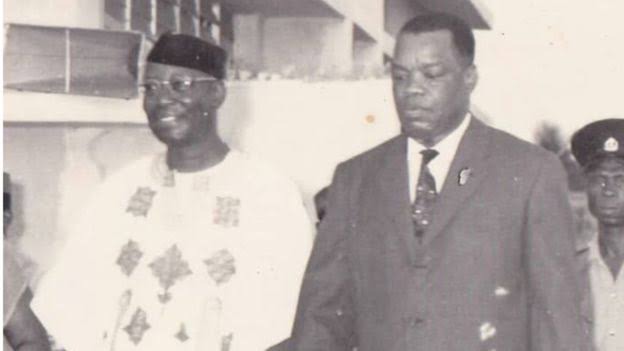
During the period of pre-independence and in the First Republic, Ojukwu was an active member and donor to the political party, NCNC. He was a one-time member of the House of Representative. In 1958, he was chairman of the Eastern Region Development Corporation and the Eastern Regional Marketing Board.[4] On May 1, 1953, he was appointed head of an NCNC peace committee and given power to choose most of the committee's members. The committee was charged with the responsibility of restoring peace in the regional House of Assembly. His views on policy were a little bit capitalistic and right of Zik's socialist undertones.[5] He was a co-author of a report on the Economic Mission to Europe and North America with Azikiwe, the report recommended the investment of extra funds from the produce marketing board in a regional bank and public corporations to stimulate economic development.[6] Ojukwu died in 1966, just a year before the Nigerian civil war. His son Chukwuemeka Odumegwu Ojukwu was the leader of the secessionist state of Biafra. The Ojukwus have produced a family history that bucks the trend in at least one respect: birthing a famous son who became more widely known than his famous father. Most people who know anything of the Ojukwu will only have heard of Chukwuemeka Ojukwu, the leader of the old secessionist state of Biafra, or his wife, Bianca. Not many know a certain Louis, father of the better known Emeka, and (here's where he has a bragging right) Nigeria's first billionaire.
Louis Philip Odumegwu-Ojukwu was a man of significant accomplishments. It's perfectly understandable why his achievements currently lie in the shadows of his military commander son's engagements. However, a case can be made for a wider recognition of all the firsts he notched up.
There's a good deal of inspiration to be derived from Louis's story. His many wins were more the product of a strong work ethic than of anything else. Starting off as a low-level employee at the agricultural department and then at John Holt, he beat a path through the uncertain business terrain of pre-independence Nigeria and wound up at the zenith of the country's entrepreneurial ladder.
Perhaps there was something about his background which spurred him on. Nnewi, the town he hailed from, has produced an unusually long list of naira billionaire business people (Innoson's Innocent Chukwuma and Ibeto Group's Cletus Ibeto are just two examples). Whether he had a gene for spotting opportunities or not, he certainly sensed a promise beaconing when he left John Holt to found his own company.
Louis's first big venture was his transport company, which he named after himself. His trucks helped to facilitate cross-country trade by moving products between different regions. Because his transport business was plugging a hole that was still considerably open at the time, he made a significant fortune from it.
Throughout the era of the World War and after, the Ojukwu trucks carried goods and raked in income for their owner. At a point, the British had their supplies for the war moved by Louis's trucks- a service for which Louis was later rewarded; years later, he was conferred with an MBE by Queen Elizabeth II.
The relatively upbeat economic environment of the post World War years presented an opportunity to diversify into other business concerns, and Louis seized upon it. Besides shipping stockfish to Nigeria, he also got involved in real estate and sold textiles and cement.
As his wealth grew, his influence and clout began to extend beyond the industry. He was active in pre-independence politics and was a donor of the National Council of Nigeria and Cameroons (NCNC), a political party which had Nnamdi Azikiwe as one of its members. At a point, he was elected to the House of Representatives.
Back in his familiar terrain of commerce, Louis became even more influential. He sat on the boards of many of the country's biggest companies and was also a founder and first president of the Nigerian Stock Exchange.
By the time of his death in 1966, Louis Odumegwu Ojukwu's wealth was worth $4 billion by the current value. But beyond his riches and bourgeoise culinary tastes, he had lived his entrepreneurial life in an exemplary way, at least in one sense: his meticulousness with his business dealings. The very mindset that gave rise to his successes was the one which caused him to inspect his trucks with such keenness and punctuality. It was the oil that lubricated his business's history-spinning machine.
Source: Wikipedia, HistoryVille
